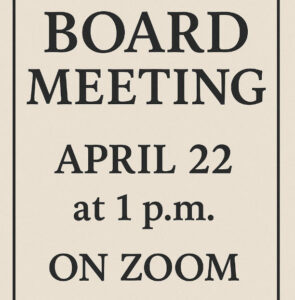The award celebrated Peters’ innovative approach to instruction that emphasizes practical, technology-based learning
 Elizabeth “Liz” Peters, lead faculty for the Yavapai College Electrical & Instrumentation Technology and Applied Pre-Engineering programs, has received the 2025 Faculty Excellence Award for Innovation from the American Association of Community Colleges (AACC). She was one of nine recipients of the annual AACC Awards of Excellence. Peters accepted the award at the AACC Awards of Excellence Gala on April 15 in Nashville, Tennessee.
Elizabeth “Liz” Peters, lead faculty for the Yavapai College Electrical & Instrumentation Technology and Applied Pre-Engineering programs, has received the 2025 Faculty Excellence Award for Innovation from the American Association of Community Colleges (AACC). She was one of nine recipients of the annual AACC Awards of Excellence. Peters accepted the award at the AACC Awards of Excellence Gala on April 15 in Nashville, Tennessee.
The AACC Awards of Excellence honor individuals and institutions that have significantly advanced the mission of community colleges. Winners are selected by a national committee of peers.
In its press release, the College stated that innovation is ongoing in the programs Peters leads and the classes she teaches at the Community College’s Career and Technical Education Center (CTEC), located adjacent to the Prescott Regional Airport.
Since joining Yavapai College in 2014, Peters has chaired the Electronics, Instrumentation, and Automation Advisory Board since 2019, served as Occupational Department Chair from 2017 to 2019, and currently serves as the faculty chair of the Curriculum Committee. She previously earned an Excellence Award from the National Institute for Staff and Organizational Development (NISOD) and was named CTEC Outstanding Faculty Member of the Year. Peters also serves as a peer mentor, is a faculty representative on the College Council, and is frequently called upon to lead STEM (science, technology, engineering, and mathematics) events in the community.

 In an April 17 press release, Yavapai Community College announced that Ryan Avery Follensbee will assume the position of Director of its Viticulture and Enology Program on the Verde Valley Campus. Follensbee replaces Michael Pierce, who resigned in January 2025. Pierce served the college for eleven years and played a key role in developing the Viticulture and Enology program. He served as director of the program for more than six years before his resignation.
In an April 17 press release, Yavapai Community College announced that Ryan Avery Follensbee will assume the position of Director of its Viticulture and Enology Program on the Verde Valley Campus. Follensbee replaces Michael Pierce, who resigned in January 2025. Pierce served the college for eleven years and played a key role in developing the Viticulture and Enology program. He served as director of the program for more than six years before his resignation. The Yavapai Community College District Governing Board will hold a meeting on Tuesday, April 22, via YouTube. The meeting was originally scheduled to take place at the Rock House on the Prescott Campus. However, Board Chair Deb McCasland abruptly changed the format to a virtual Zoom meeting weeks ago, informing the Board, in part, that “after learning of safety concerns related to our board meetings,” they would be held virtually “until further notice.”
The Yavapai Community College District Governing Board will hold a meeting on Tuesday, April 22, via YouTube. The meeting was originally scheduled to take place at the Rock House on the Prescott Campus. However, Board Chair Deb McCasland abruptly changed the format to a virtual Zoom meeting weeks ago, informing the Board, in part, that “after learning of safety concerns related to our board meetings,” they would be held virtually “until further notice.”
 Colleges across the country are increasingly being targeted by fraudsters who use stolen or fake identities to enroll in classes and collect financial aid. For example, at Century College in White Bear Lake, Minnesota, officials estimate that as many as 15% of students in one class were part of what has been described as “an organized crime ring” exploiting this scheme.
Colleges across the country are increasingly being targeted by fraudsters who use stolen or fake identities to enroll in classes and collect financial aid. For example, at Century College in White Bear Lake, Minnesota, officials estimate that as many as 15% of students in one class were part of what has been described as “an organized crime ring” exploiting this scheme. Yavapai Community College announced that effective April 21 Mr. Tim Kneip will become its new Athletic Director. Kneip replaces Michael Tenette, who was hired in September 2023. Tenette replaced Brad Clifford. Clifford announced his resignation in June 2023 after dedicating over 35 years to the institution. Tenette was hired in September of that year.
Yavapai Community College announced that effective April 21 Mr. Tim Kneip will become its new Athletic Director. Kneip replaces Michael Tenette, who was hired in September 2023. Tenette replaced Brad Clifford. Clifford announced his resignation in June 2023 after dedicating over 35 years to the institution. Tenette was hired in September of that year.
